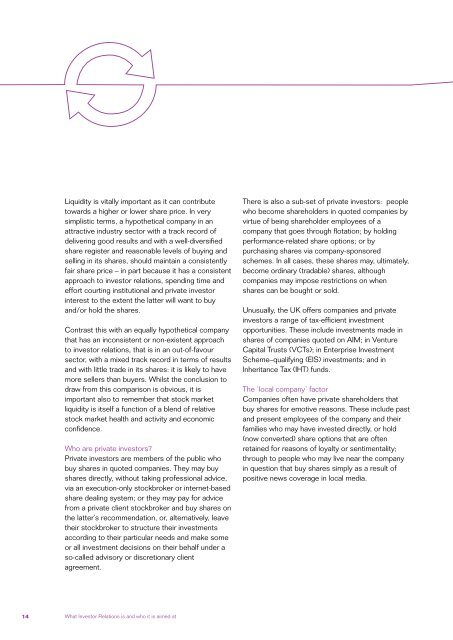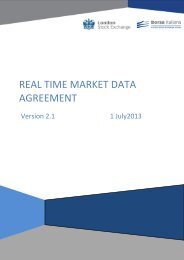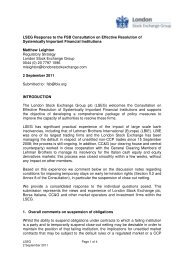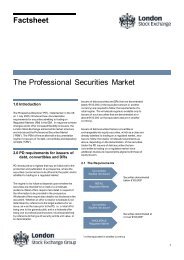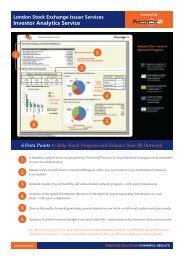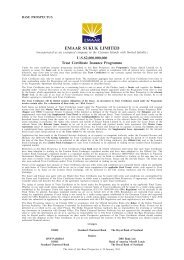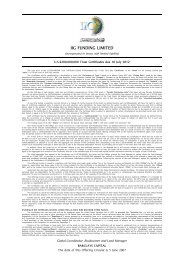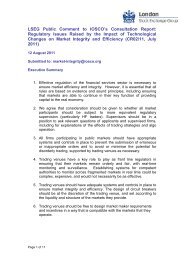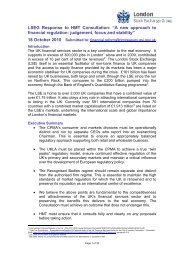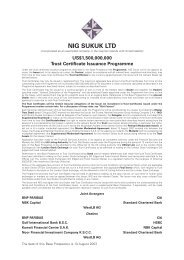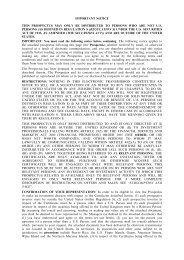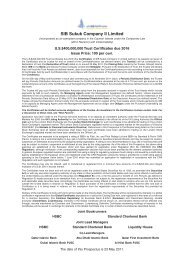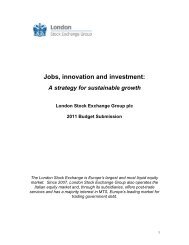Investor Relations - A Practical Guide - Investis
Investor Relations - A Practical Guide - Investis
Investor Relations - A Practical Guide - Investis
Create successful ePaper yourself
Turn your PDF publications into a flip-book with our unique Google optimized e-Paper software.
Liquidity is vitally important as it can contribute<br />
towards a higher or lower share price. In very<br />
simplistic terms, a hypothetical company in an<br />
attractive industry sector with a track record of<br />
delivering good results and with a well-diversified<br />
share register and reasonable levels of buying and<br />
selling in its shares, should maintain a consistently<br />
fair share price – in part because it has a consistent<br />
approach to investor relations, spending time and<br />
effort courting institutional and private investor<br />
interest to the extent the latter will want to buy<br />
and/or hold the shares.<br />
Contrast this with an equally hypothetical company<br />
that has an inconsistent or non-existent approach<br />
to investor relations, that is in an out-of-favour<br />
sector, with a mixed track record in terms of results<br />
and with little trade in its shares: it is likely to have<br />
more sellers than buyers. Whilst the conclusion to<br />
draw from this comparison is obvious, it is<br />
important also to remember that stock market<br />
liquidity is itself a function of a blend of relative<br />
stock market health and activity and economic<br />
confidence.<br />
Who are private investors<br />
Private investors are members of the public who<br />
buy shares in quoted companies. They may buy<br />
shares directly, without taking professional advice,<br />
via an execution-only stockbroker or internet-based<br />
share dealing system; or they may pay for advice<br />
from a private client stockbroker and buy shares on<br />
the latter’s recommendation, or, alternatively, leave<br />
their stockbroker to structure their investments<br />
according to their particular needs and make some<br />
or all investment decisions on their behalf under a<br />
so-called advisory or discretionary client<br />
agreement.<br />
There is also a sub-set of private investors: people<br />
who become shareholders in quoted companies by<br />
virtue of being shareholder employees of a<br />
company that goes through flotation; by holding<br />
performance-related share options; or by<br />
purchasing shares via company-sponsored<br />
schemes. In all cases, these shares may, ultimately,<br />
become ordinary (tradable) shares, although<br />
companies may impose restrictions on when<br />
shares can be bought or sold.<br />
Unusually, the UK offers companies and private<br />
investors a range of tax-efficient investment<br />
opportunities. These include investments made in<br />
shares of companies quoted on AIM; in Venture<br />
Capital Trusts (VCTs); in Enterprise Investment<br />
Scheme–qualifying (EIS) investments; and in<br />
Inheritance Tax (IHT) funds.<br />
The ‘local company’ factor<br />
Companies often have private shareholders that<br />
buy shares for emotive reasons. These include past<br />
and present employees of the company and their<br />
families who may have invested directly, or hold<br />
(now converted) share options that are often<br />
retained for reasons of loyalty or sentimentality;<br />
through to people who may live near the company<br />
in question that buy shares simply as a result of<br />
positive news coverage in local media.<br />
14<br />
What <strong>Investor</strong> <strong>Relations</strong> is and who it is aimed at


